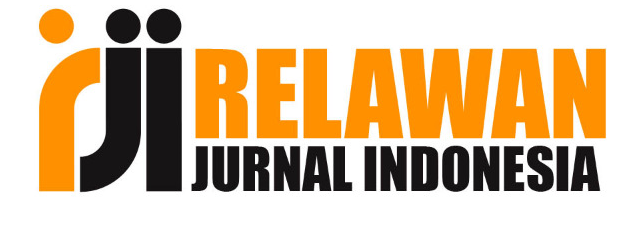Peran Kapasitas Fiskal, Dependensi Fiskal pada Pemerintah Pusat, dan Belanja Daerah dalam Meningkatkan Kualitas Hidup Masyarakat: Studi Lintas Kabupaten/Kota di Pulau Kalimantan
DOI:
https://doi.org/10.61179/ejba.v19i2.789Keywords:
Fiscal Capacity, Fiscal Dependency, Local Government Expenditure, Human Development Index, Fiscal FederalismAbstract
Penelitian ini mengkaji pengaruh kapasitas fiskal, dependensi fiskal pada pemerintah pusat, dan belanja daerah terhadap kualitas hidup masyarakat pada 56 kabupaten/kota di Pulau Kalimantan selama periode 2019–2023. Metode yang digunakan adalah Structural Equation Modeling–Partial Least Squares (SEM-PLS) untuk mengevaluasi hubungan langsung dan efek moderasi belanja daerah. Hasil penelitian menunjukkan bahwa Pendapatan Asli Daerah (PAD) berpengaruh positif signifikan terhadap Indeks Pembangunan Manusia (IPM), sementara Transfer ke Daerah (TKD) berpengaruh signifikan dengan arah negatif. Belanja daerah tidak memiliki pengaruh langsung yang signifikan terhadap IPM. Namun, belanja daerah memoderasi hubungan PAD dan IPM secara negatif, serta memoderasi hubungan TKD dan IPM secara positif dan signifikan. Secara keseluruhan, temuan ini mengindikasikan bahwa efektivitas kapasitas fiskal dalam meningkatkan kualitas hidup sangat bergantung pada kualitas tata kelola belanja daerah. Pemerintah daerah perlu meningkatkan kemandirian fiskal dan mengarahkan belanja pada sektor produktif yang berkontribusi langsung terhadap pembangunan manusia.References
Arfandi, S., Hasanuddin, B., Madris, & Saudi, N. D. S. (2024). The Effect of Government Expenditure on the Human Development Index. Proceedings of the 9th International Conference on Accounting, Management, and Economics (ICAME), 2944–2951. https://doi.org/10.2991/978-94-6463-758-8
Aritenang, A. F. (2020). The Effect of Intergovernmental Transfers on Infrastructure Spending in Indonesia. Journal of the Asia Pacific Economy, 25(3), 571–590. https://doi.org/10.1080/13547860.2019.1675352
Choi, N. H. (2021). Analyzing local government capacity and performance: Implications for sustainable development. Sustainability (Switzerland), 13(3862). https://doi.org/10.3390/su13073862
Fahriza, M. R., & Ariani, K. R. (2023). The Influence of Local Own Income and balanced Fund on HDI With Capital Expenditure as an Intervening Variable in Districts / Cities of Central Java (2019-2021). American Journal of Humanities and Social Sciences Research, 03, 187–201. www.ajhssr.com
Hadisuwito, M. S., Yokanan, R. T., & Kaloeti, A. K. (2025). The Effect of Inclusive Leadership on Innovative Work Behavior Mediated By Perceived Organizational Support. Phinisi, 02(03), 83–96. https://doi.org/10.64282/phi.v2i3.98
Hair, J. F., Hult, G. T. M., Ringle, C. M., Sarstedt, M., Danks, N. P., & Ray, S. (2021). Partial Least Squares Structural Equation Modeling (PLS-SEM) Using R. https://doi.org/10.1007/978-3-030-80519-7_7
Hung, N. T., & Thanh, S. D. (2022). Fiscal Decentralization, Economic Growth, and Human Development: Empirical Evidence Fiscal Decentralization, Economic Growth, and Human Development?: Empirical Evidence. Cogent Economics and Finance, 10(1). https://doi.org/10.1080/23322039.2022.2109279
Isman, M. H. S., Salomo, R. V., & Bakri, M. R. (2025). Impact of Fiscal Transfers and Local Revenue Accountability on Community Welfare in Indonesia. Owner, 9(2), 1407–1416. https://doi.org/10.33395/owner.v9i2.2684
Jin, H., & Jakovljevic, M. (2023). Fiscal Decentralization and the Human Development Index: A Cross-Border Empirical Study. Sustainability (Switzerland), 15(11), 1–16. https://doi.org/10.3390/su15118784
Lewis, B. D. (2023). Indonesia’s New Fiscal Decentralisation Law: A Critical Assessment. Bulletin of Indonesian Economic Studies, 59(1), 1–28. https://doi.org/10.1080/00074918.2023.2180838
Miranda-Lescano, R., Muinelo-Gallo, L., & Roca-Sagalés, O. (2023). Human Development and Decentralization: The Importance of Public Health Expenditure. Annals of Public and Cooperative Economics, 94(1), 191–219. https://doi.org/10.1111/apce.12373
Nugroho, A. A., & Candrawati, C. (2025). Desentralisasi Fiskal dan Kemandirian Daerah Pemekaran: Studi Kasus pada Provinsi Sulawesi Barat. Dialogue?: Jurnal Ilmu Administrasi Publik, 7(1), 046–057. https://ejournal2.undip.ac.id/index.php/dialogue/article/view/26656
Oates, W. E. (1999). An essay on fiscal federalism. Journal of Economic Literature, 37(3), 1120–1149. https://doi.org/10.4324/9780203987254
Pabayo, A. S. T. (2025). The Impact of Fiscal Decentralization Policy on Regional Fiscal Independence in Indonesia. Journal of Local Government Issues (LOGOS), 8(1), 142–160. https://doi.org/https://doi.org/10.22219/logos.v8i1.37646
Panggabean, M., & Matondang, E. R. L. (2019). Pengaruh Pengeluaran Pemerintah Daerah, Indeks Pembangunan Manusia (IPM), dan Pertumbuhan Ekonomi Terhadap Tingkat Kemiskinan Kabupaten/Kota di Provinsi Kalimantan Barat Tahun 2010-2017. Prosiding SATIESP, 154–164. https://feb.untan.ac.id/wp-content/uploads/2019/12/13.-Meiran.pdf
Pratama, N. S., Hamzani, U., Muhsin, M., Rusliyawati, R., & Karpriana, A. P. (2025). Pengaruh Dana Alokasi Umum, Dana Alokasi Khusus, dan Pendapatan Asli Daerah Terhadap Indeks Pembangunan Manusia Dengan Belanja Modal Sebagai Variabel Mediasi pada Pemerintah Kabupaten/Kota di Provinsi Kalimantan Barat. Journal of Innovation in Management, Accounting and Business, 4(1), 16–26. https://doi.org/10.56916/jimab.v4i1.1080
Ramdan, N. A., Liana, S., & Lukita, C. (2025). Pengaruh PAD, DAU, dan Investasi Swasta terhadap IPM dengan Belanja Langsung sebagai Variabel Intervening di Indonesia. Jambura Accounting Review, 6(1), 137–151.
Sofilda, E., Zilal Hamzah, M., & Kusairi, S. (2023). Analysis of Fiscal Decentralisation, Human Development, and Regional Economic Growth in indonesia. Cogent Economics and Finance, 11(1). https://doi.org/10.1080/23322039.2023.2220520
UNDP. (2024). Human Development Report 2023-24. In United Nations Development Programme. http://report.hdr.undp.org
Wirandana, P. A., & Khoirunurrofik, K. (2024). Educational Inequality in Indonesia: Are Intergovernmental Fiscal Transfers Effective in Reducing the Gap? Educational Studies, 50(6), 1424–1443. https://doi.org/10.1080/03055698.2022.2103647
Downloads
Published
How to Cite
Issue
Section
License
Copyright (c) 2025 Jannes Samuel Elfronzo Abhimael Panggabean, Agung Mahendra, Kurniasih Jati Setyaningsih

This work is licensed under a Creative Commons Attribution 4.0 International License.















